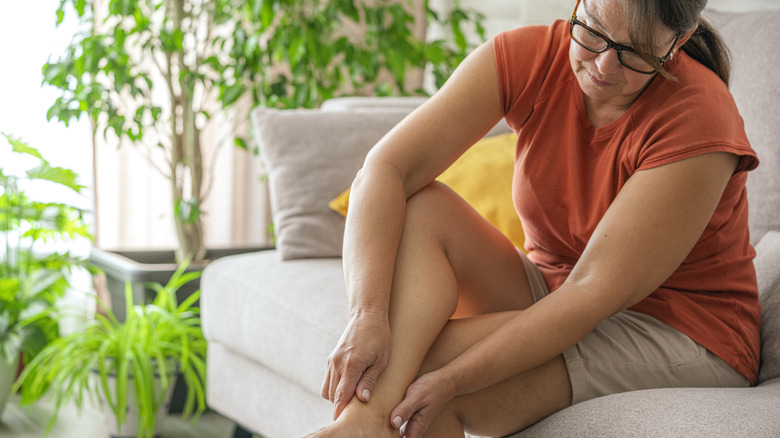
We may receive a commission on purchases made from links.
After a long day of standing or sitting, it’s common to experience heaviness, swelling, or discomfort in your legs. Elevating your feet during the day can offer temporary relief, but sleeping with your legs elevated at night may provide more significant, lasting benefits—particularly in reducing swelling and promoting heart health. (Learn more about how your sleeping habits can impact your heart health.)
When you raise your legs above heart level as you sleep, gravity aids in enhancing circulation and facilitates the return of blood and fluid to your core. This alleviates pressure in the lower limbs, reduces fluid accumulation, and helps your heart pump more effectively. Over time, this simple change in sleeping position may not only alleviate swelling but also enhance overall cardiovascular health. Additionally, it may benefit various health conditions you might have.
Health conditions benefited by leg elevation

Elevating your legs can be beneficial for numerous conditions. For instance, doctors might recommend it during pregnancy to alleviate swelling from fluid retention. This position can also assist with various venous issues, like varicose veins, which occur when blood backs up in your veins, causing them to become twisted and swollen. If you’ve had a leg injury, keeping your leg elevated can help ease the associated pain and swelling. Elevation may also be advised after leg surgery to reduce swelling and prevent deep vein thrombosis (DVT). Additionally, elevating your legs may be recommended for lymphedema, a painful condition where fluid collects beneath the skin in the fatty tissue.
If you have an underlying health condition, always consult with your doctor to ensure leg elevation is suitable for you. Your doctor may have specific recommendations on how they want you to do it. There may also be reasons why it could be detrimental to your particular situation.
How to sleep with your legs elevated

Sleeping with your legs elevated can alleviate swelling and support circulation, but it’s crucial to do it correctly. Utilize a supportive surface such as your bed or a reclining couch, and elevate your legs above heart level with a wedge pillow or a stack of firm pillows. Ensure your entire lower leg—thighs, calves, and feet—is supported, and keep your knees slightly bent to avoid strain.
To maintain comfort and circulation, avoid letting your feet dangle and ensure your arrangement doesn’t stress your lower back. Leg elevation pillows are ideal, as they’re designed to hold your legs at the correct height and angle. If using regular pillows, cushion your calves and heels evenly to prevent stiffness or numbness.
Moderation is key. It’s unnecessary to keep your legs elevated all night—15 to 20 minutes before bed or short intervals during the night may suffice.
While leg elevation can be a beneficial addition to your routine, it is not a replacement for medical care. Always consult your doctor if you have circulatory issues or other health concerns. Used properly, this simple practice can offer genuine relief and encourage better rest.
“`




